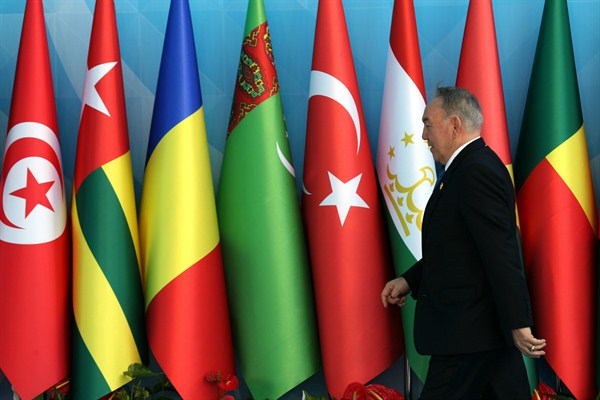Over the past quarter-century, citizens of Kazakhstan have developed a reputation for relative staidness. Unlike residents of other post-Soviet republics like Kyrgyzstan, Ukraine or Georgia, Kazakhstanis have largely avoided public protest, opting to sideline complaints on longstanding corruption and political repression in favor of enjoying the fruits of the country’s massive hydrocarbon windfall. Over the past three weeks, however, that reputation has begun to shift. And considering how much collapsed energy prices have gouged Kazakhstan’s economic prospects—and how myopically Astana has managed the country’s finances since—recent frustrations may be just the beginning.
In late April, a series of large-scale, spontaneous protests burst through Kazakhstan, catching flat-footed officials by surprise. Unlike prior attempts at localized demonstrations, these protests scoured the entire country, without any geographic focus, and were effectively unprecedented in tightly controlled Kazakhstan.
The demonstrations pivoted, at least nominally, off of governmental designs on land reform. A series of recent amendments implemented by President Nursultan Nazarbayev’s government allowed non-citizens to rent swaths of arable land throughout the country, obtained via auction, for up to 25 years. While the extended timeframe remained shorter than historical highs—in the mid-1990s, for instance, foreigners could lease land for up to 99 years—the amendments presented a significant jump from the 10-year limit enforced over the past few years.

